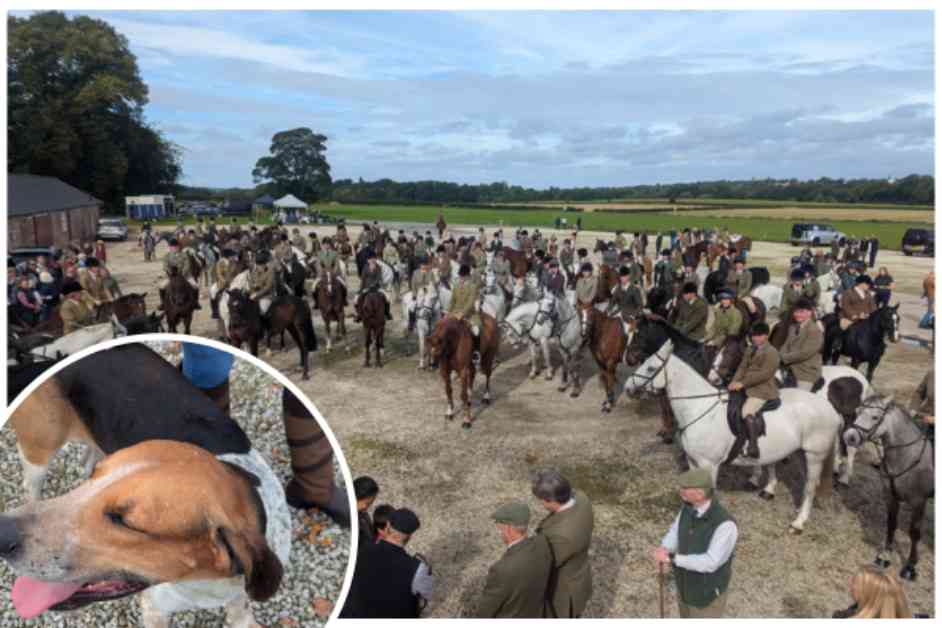Hunting Community Calls for Self-Regulation
Members and supporters of the Cheshire Forest Hunt recently gathered at the Astley Showground to advocate for robust self-regulation within the hunting community. The proposed law changes, which could potentially ban trail hunting, have sparked concerns among hunters who fear for the future of their way of life. The British Hound Sports Association (BHSA) organized a National Trail Hunt Day, where trail hunters from all over the country came together to voice their opinions on the matter.
Trail hunting has been a prominent activity since the hunting ban was implemented in 2005. It is designed to simulate traditional fox hunting as closely as possible by laying a trail of animal-derived scent for hounds to follow. This method allows the hounds to conduct their work in a natural way, without chasing live quarry. However, critics of trail hunting argue that it serves as a smokescreen to conceal illegal hunting activities, as the two practices can appear quite similar to the untrained eye.
Debunking Misconceptions about Trail Hunting
Liz Gorse, joint master of the Cheshire Forest Hunt, emphasized the importance of understanding the nuances of trail hunting. She highlighted the fact that no mammals are chased during trail hunts, and if a hare is encountered, the hounds can be called off by the whippers-in. This level of control ensures that the hounds behave in a disciplined manner and do not engage in any illegal activities. Gorse also mentioned that trail hunting has evolved over the years, with huntsmen like Fraser Campbell ensuring that the hounds are obedient and well-trained.
Gorse debunked the notion that trail hunting is a cover-up for illegal fox hunting, stating that accidents have occurred in the past but that accountability has always been upheld. She pointed out that out of approximately 250,000 days of hunting since the ban, only 23 prosecutions have taken place. The BHSA has taken a strict stance against offending hunts, leading to the disbandment of certain groups over serious matters. Gorse emphasized the need for proper self-regulation within the hunting community to prevent any unlawful activities.
The Future of Trail Hunting
As discussions continue about the potential ban on trail hunting, members of the hunting community are advocating for better regulation rather than a complete prohibition. Gorse expressed concerns about the implications of a total ban, noting that it would result in the unnecessary euthanization of healthy hounds. She emphasized that hounds are not suitable as pets and that a ban would devastate the hunting community. Gorse believes that with proper self-regulation and adherence to existing laws, the hunting tradition can continue to thrive without facing extinction.
In conclusion, the debate surrounding trail hunting and its future regulation is complex and multifaceted. While critics raise valid concerns about the potential misuse of trail hunting as a cover for illegal activities, proponents argue for the preservation of a longstanding tradition. The key moving forward is to find a balance between enforcing strict regulations to prevent abuse while allowing legitimate hunters to continue their activities in a responsible manner. The hunting community’s call for robust self-regulation is a step towards ensuring the sustainability of their way of life while upholding ethical standards within the sport.




















